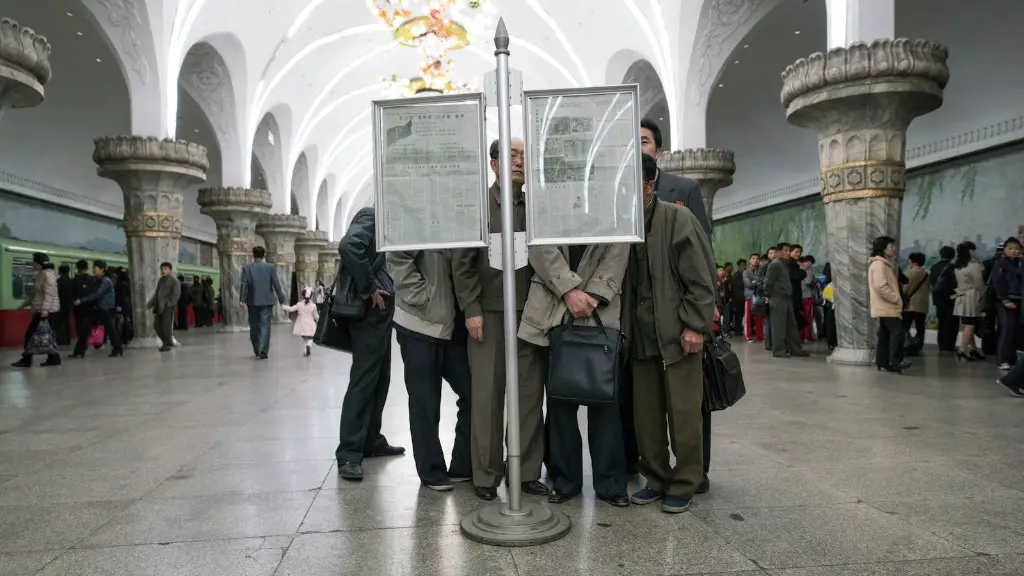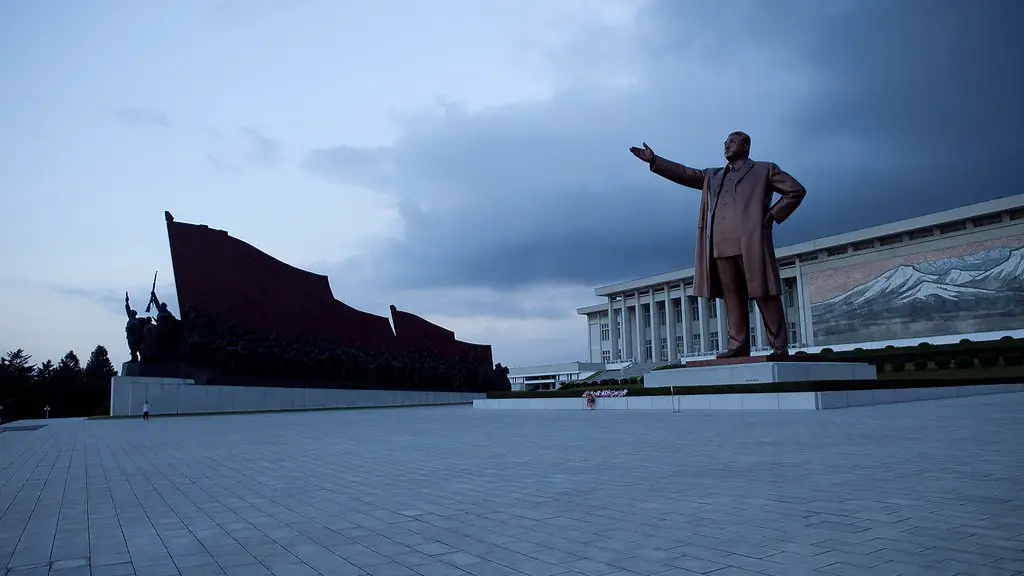Why Do North Korea Hate Us?
For years, North Korea has been a hot topic around the world due to its hostile rhetoric against the United States. So why exactly does North Korea hate the US? The answer is complicated, with both historical and ongoing factors playing a huge role.
The Historical Context
The historical context of US-North Korean relations dates back to the 1950s. During the Korean War, the US allied with South Korea to fight against their northern counterparts. As part of this conflict, the US dropped more bombs on North Korea than any other country in the action, resulting in an estimated 3 million casualties. This long-lasting animosity became deeply embedded in North Korean culture, leading to a strong anti-US sentiment.
The Modern Situation
Since the end of the war, there has been little to encourage North Korea to forgive and forget. It has been the subject of numerous international tensions over the past few decades, with the US establishing a number of economic and political sanctions in response to its nuclear weapons program. Furthermore, US officials often make disparaging remarks about the North Korean government and its leaders, which only serves to exacerbate the bad blood between the two countries.
The Humanitarian Issues
The humanitarian issues within North Korea are also a major factor in why it harbors such animosity towards the US. The Democratic People’s Republic of Korea (DPRK) is one of the most repressive regimes in the world and its citizens suffer greatly due to a lack of food, healthcare and other essential services. Unfortunately, this situation is unlikely to improve any time soon as the US has refused to lift the economic sanctions it has imposed on the country.
The Military Threat
In addition to all of these factors, North Korea is acutely aware of the US’s vast military power. US troops are stationed along the border between the two countries, indicating that the US could easily penetrate North Korean borders if it wanted to. This potential for aggression has only heightened North Korea’s fear and distrust of the US.
The Strategic Intentions
When examining North Korea’s hatred of the US, it is also important to consider its geopolitical ambitions. North Korean officials have consistently advocated for a so-called ‘Hermit Kingdom’, a self-governed nation free from the influence of external powers. This goal is in direct contrast to US policy, which prioritizes global stability and the proliferation of liberal ideals.
Suppression of Globalization
The North Korean regime is also wary of globalization and its potential for democratization. It has made efforts to suppress outside information, such as the internet, in order to limit its citizens’ exposure to the outside world. This suspicion towards the US is closely linked with North Korea’s desire to remain isolated from the rest of the international community.
Economic Dependence
The North Korean economy is heavily reliant on foreign aid, with China providing the majority of this assistance. However, the US is still a major player in the region and its economic sanctions could have a far-reaching impact on the North Korean economy. In this way, the US is seen as a source of instability and control, further fuelling existing fears and resentments.
Political Uncertainty
The US also often employs unpredictable tactics when dealing with North Korea, making it difficult for the country to anticipate US policy or know how it will react to certain issues. This lack of certainty has exacerbated existing issues, such as human rights abuses, and created an atmosphere of distrust between the two countries.
International Reputation
North Korea has also been damaged by its reputation abroad as a rogue state. The US is often critical of North Korea’s human rights record and nuclear program, which has only served to deepen the rift between the two countries. This international scrutiny has made North Korea feel isolated and unsupported, further fuelling its animosity toward the US.
Reversing the Tensions
Ultimately, the only way to truly reverse the tension between North Korea and the US is for both sides to take steps towards peace and reconciliation. The US would need to refrain from making inflammatory remarks about North Korea and its leaders, while North Korea would need to make a concerted effort to improve its human rights record and open up to international cooperation.
A New Relationship?
It remains to be seen whether these steps will be enough to bridge the divide between North Korea and the US. If both sides are willing to make concessions and work towards mutual understanding, then perhaps a new relationship between the two countries could emerge. Only time will tell.



